
Talk to your vet to determine if the issue is medical, behavioral, or environmental
Read Time: 6 minutes
There are a number of different reasons why a cat might not use the litter box. Some of these are behavioral while others might be health-related. You’ll want to rule out health problems first before turning to the other possibilities.
Medical Conditions
There are various medical conditions that could cause your cat to avoid using the litter box. These include:
- Urinary tract infection
- Constipation
- Kidney stone
- Bladder stone
- Diabetes
- Cystitis
- Hyperthyroidism
- Cancer
- Arthritis
Take Your Cat to the Vet
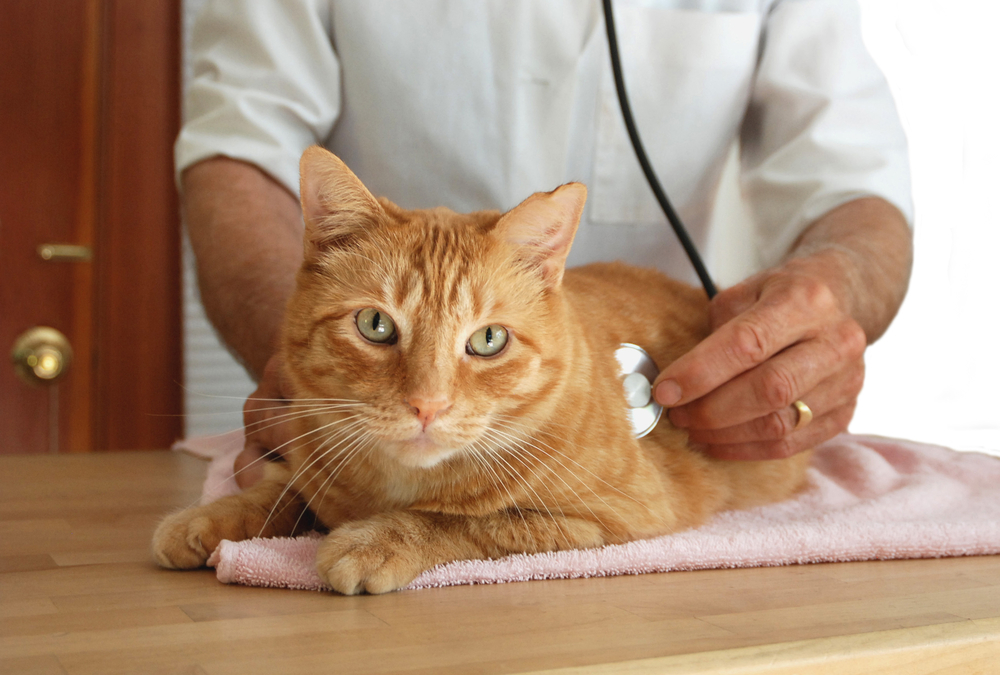
If you notice that your cat isn’t using the litter box, the first thing you should do is take your cat to the vet. The vet can determine whether a medical condition is afflicting your pet or if the cause is something else. After you first notice that your cat isn’t using the litter box, keep an eye out for other symptoms. For example, if your cat isn’t relieving itself anywhere, then it may be constipated. If there’s bloody urine, it could a urinary tract infection.
Book an Appointment Right Away
You’ll want to have as much information as possible to give your vet, but don’t wait to make an appointment. Your vet has many tools at their disposal to diagnose your pet even if you don’t have time to observe for other symptoms. There’s bloodwork, fecal examination, urinalysis, or event ultrasounds and x-rays that a vet can use to determine what might be ailing your cat.
Behavioral Issues
It’s important to eliminate possible medical issues first. If your vet has thoroughly checked over your cat and found that there’s no underlying medical condition causing them to not use the litter box, then it’s time to look for behavioral or environmental problems. You’ll have to pay close attention to your cat’s overall behavior and where they’re spraying in order to discover whether there’s an environmental stressor affecting their behavior.
Stress
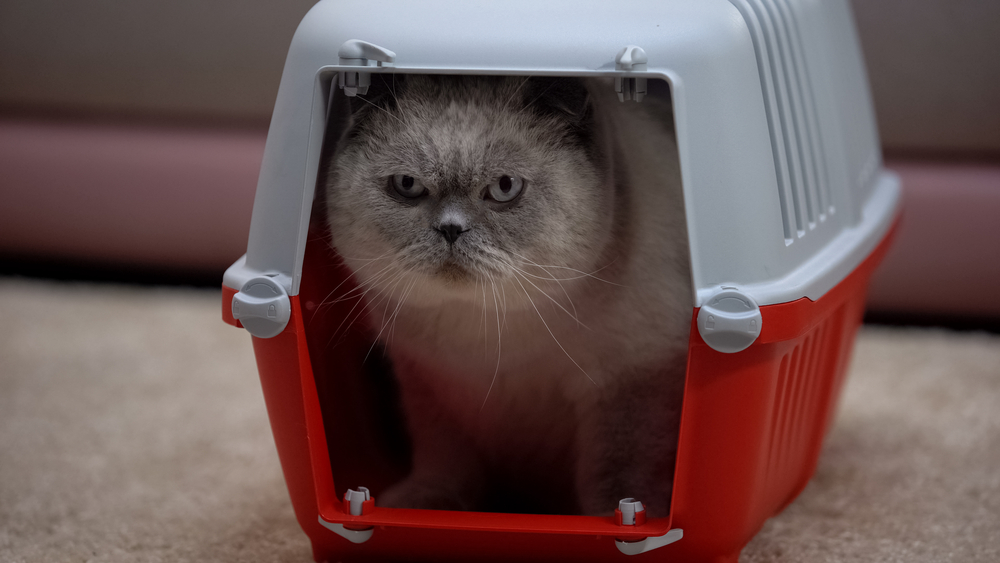
One possible cause of inappropriate elimination is stress. If your cat is stressed, they might:
- Spray items new to the home that bring in new scents
- Spray vertical or upright surfaces
- Spray windows
- Spray doors
- Spray hallways
- Spray stairways
- Defecating in the litterbox but spraying outside of it
- Spraying in the litter box sometimes but not always
Stress Caused by an Internal Issue
If your cat is spraying in hallways, stairways, and near interior doorways, then the cause of the stress may be inside the home. It could be something like remodeling, rearranging, a new baby, a new pet, or something else that has changed within the house.
Stress Cause by an External Issue
If your cat is spraying near windows and exterior doorways, then they may be detecting a threat outside of the home. Your cat could be sensing something outside that is causing them stress.
How to Treat Your Cat’s Stress
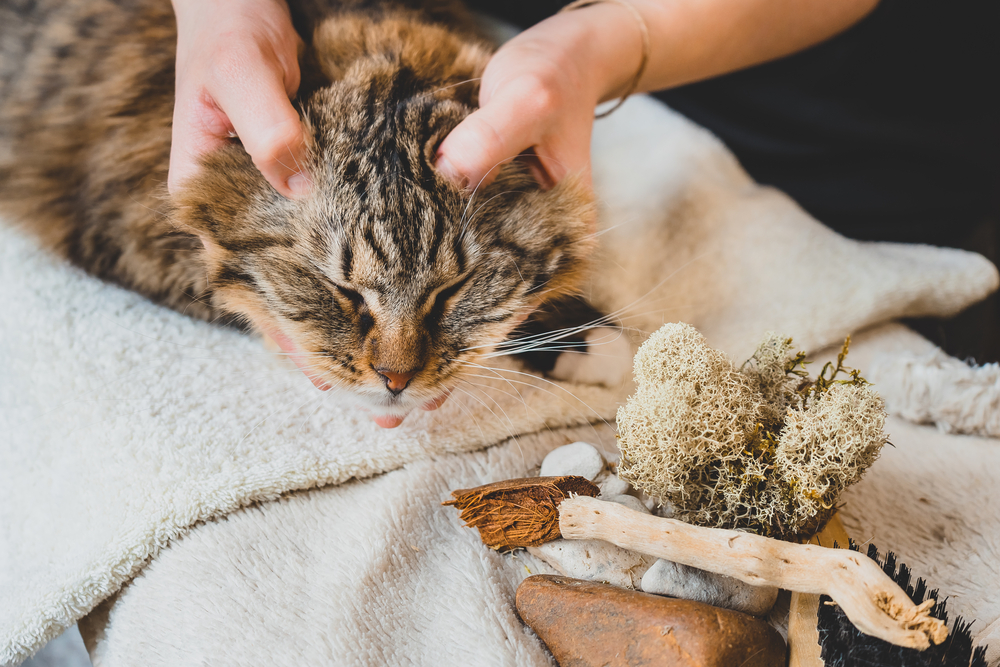
If you believe that your cat is stressed or suffering from anxiety, then you should speak to your vet. There may be anti-anxiety medication that you can give to your cat to help. Your vet may also be able to help you to determine the cause of the stress and to recommend techniques you can use to calm your cat. Cats often don’t like change, so it’s also possible that your cat will stop spraying on their own after they adjust to that change.
Environmental Issues
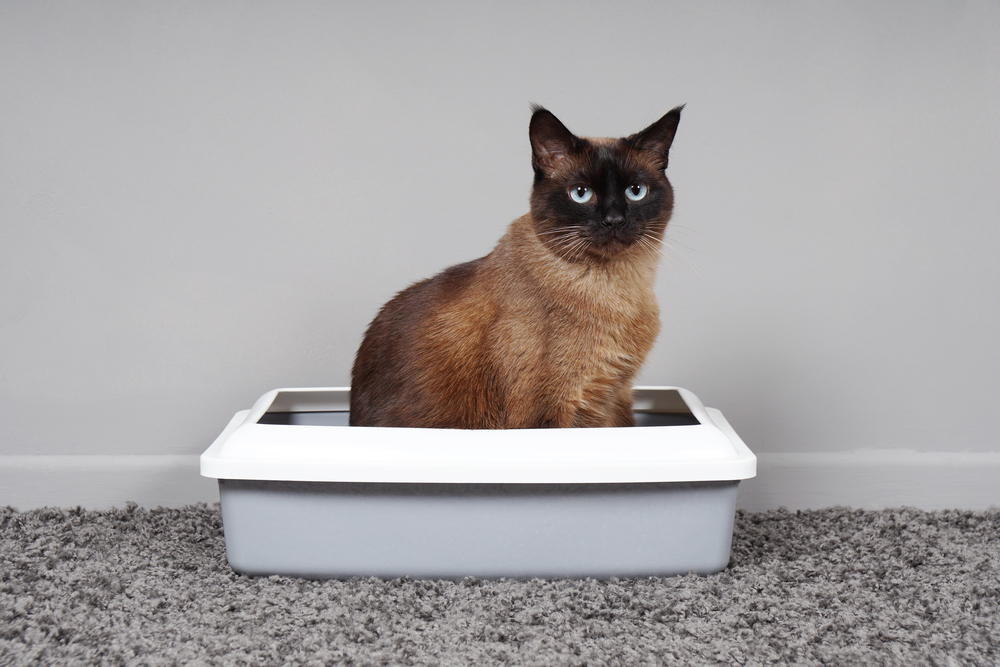
Cats can be picky about their litter boxes. If the environment isn’t to their liking, whether it’s the location, the type of litter, the number of litter boxes, or something else, then they might eliminate somewhere else.
Not Enough Litter Boxes
If you have more than one cat, it’s important to have enough litter boxes. You should have a number of litter boxes equal to one more than the number of cats you have. If you have three cats, then you’ll need four litter boxes. You’ll also need to make sure that the litter boxes aren’t placed close to one another. Ideally, they should be on separate floors when possible.
Litter Box Location
The litter box should be in as quiet and private a place as possible. They should also be located as far away from your cat’s food dish as you can manage. Additionally, the box shouldn’t be located somewhere dark or tight, like a closet. If the litter box isn’t in a location that your cat likes, then they may eliminate elsewhere. It’s also important to not move the litter box unless you have to because cats are creatures of habit.
Block off the Litter Box
If you have small children, you may want to block off access to the litter box in such a way that your cat can still reach it but that your children can’t. Unwanted intruders like children or other pets could disturb your cat’s sense of privacy and security with that litter box location, which could drive them to avoid using it.
Cleanliness

It’s vital to keep the litter box and the area around it clean. Cats tend to be fastidious about cleanliness and if they think their litter box isn’t clean enough, they won’t use it. How often you need to clean the litter box depends on the cat. Some cats require the litter box to be cleaned after every use while others are willing to use it a few times before you have to clean it.
Type of Litter
The type of litter also matters. Different litters have different textures and smells and if your doesn’t like it, they won’t use it. If you’ve recently changed the type of litter you buy for your cat, then that could be the cause of the inappropriate elimination. Try an unscented brand or a different material. Many cats prefer a sandier type of litter.
Type of Litter Box
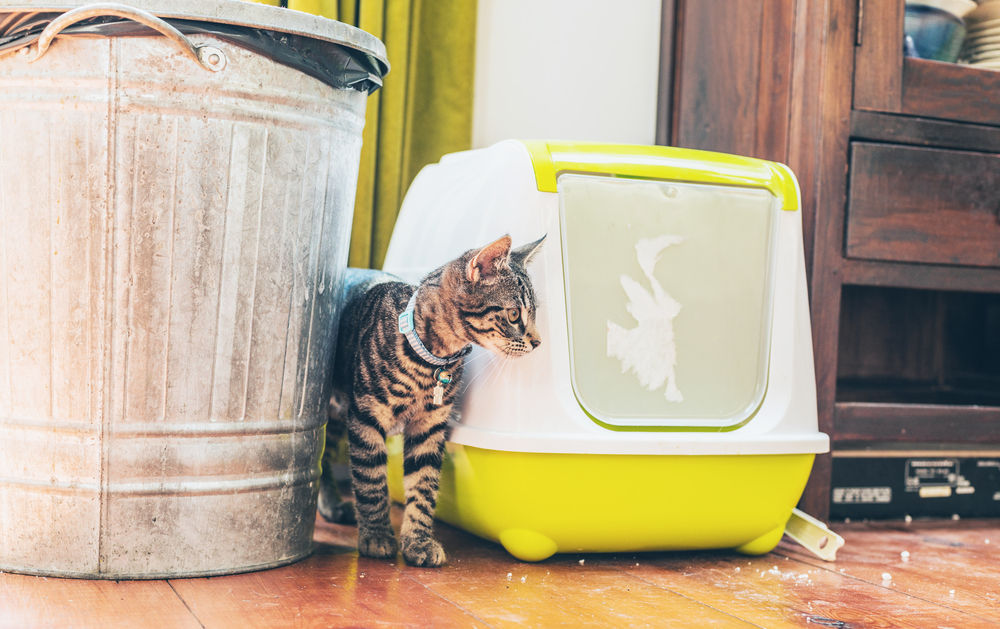
Some cats don’t like a hood on their litter box, preferring it to be open. Others prefer the litter box to have a top. It’s also possible that your cat could be too big for the litter box. Older cats might have difficulty climbing into a litter box with sides that are too tall.

Concerned about your pet’s health?
Contact us
If you have any questions about your cat’s behavior, please call our clinic at (407) 352-2579. We’ll help you through it.




